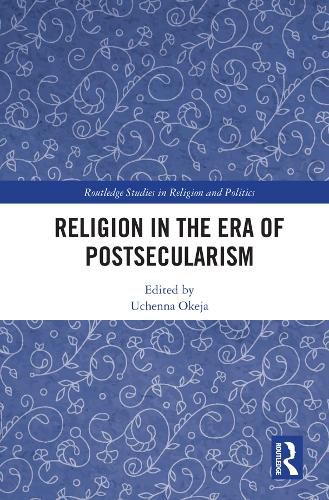Readings Newsletter
Become a Readings Member to make your shopping experience even easier.
Sign in or sign up for free!
You’re not far away from qualifying for FREE standard shipping within Australia
You’ve qualified for FREE standard shipping within Australia
The cart is loading…






Exploring the viability of new perspectives on secularisation and the idea of postsecularism, this book reflects on their relevance when considered in the context of different societies within and outside the West.
The topic of secularisation has been recently reconsidered by prominent theorists, such as Jurgen Habermas, Talal Asad, Charles Taylor, and Jose Casanova. Offering a comparative critique of postsecularism, the contributors extend the discourse on postsecularism to include non-Western experiences, providing comprehensive perspectives on the role of religion in the public sphere and considering the validity of the concept of postsecularism. Drawn from a variety of disciplines, the contributors articulate a coherent analysis of the role of religion in the public sphere from a perspective that engages in the envisaged dialogue.
This insightful book will be important for those researching secularism and postsecularism, especially from a non-Western perspective, and it will also be of interest to scholars working on politics and religion in general, political philosophy, and African studies.
$9.00 standard shipping within Australia
FREE standard shipping within Australia for orders over $100.00
Express & International shipping calculated at checkout
Exploring the viability of new perspectives on secularisation and the idea of postsecularism, this book reflects on their relevance when considered in the context of different societies within and outside the West.
The topic of secularisation has been recently reconsidered by prominent theorists, such as Jurgen Habermas, Talal Asad, Charles Taylor, and Jose Casanova. Offering a comparative critique of postsecularism, the contributors extend the discourse on postsecularism to include non-Western experiences, providing comprehensive perspectives on the role of religion in the public sphere and considering the validity of the concept of postsecularism. Drawn from a variety of disciplines, the contributors articulate a coherent analysis of the role of religion in the public sphere from a perspective that engages in the envisaged dialogue.
This insightful book will be important for those researching secularism and postsecularism, especially from a non-Western perspective, and it will also be of interest to scholars working on politics and religion in general, political philosophy, and African studies.